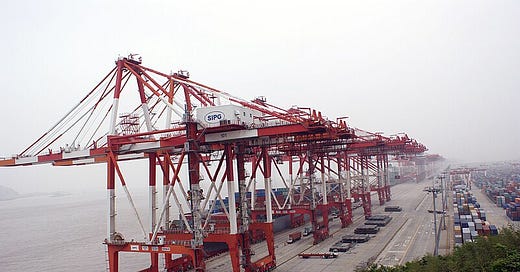Bruno Corpet (Quoique), CC BY-SA 3.0 <https://creativecommons.org/licenses/by-sa/3.0>, via Wikimedia Commons
We are living in fascinating times. We may be approaching a moment of reckoning—one that will test many of the economic assumptions mainstream economists have treated as dogmatic truths for decades. Tariffs are bad, free trade is good. And hey, maybe they’re right. I’m not claiming to have all the answers. That’s exactly why I’m excited: we might finally find out in real time.
At least, if Trump manages to go through with his plans—which, at this point, is far from certain. (When I wrote this essay, he had postponed most of the tariffs he promised, except for the Chinese one, which he actually raised.) Things are changing fast.
In the current debate over Trump’s trade policies, two basic camps have crystallized. One is the anti-tariff camp, representing what we can loosely call the “neoliberal consensus.” In this view, free trade and open markets are economically beneficial to all involved. They’ve driven the unprecedented economic growth of the modern era. Every country has its comparative advantage: some grow soybeans, some drill oil, some manufacture textiles, others develop heavy industry. It’s an optimistic view of the world economy—mutually beneficial, if only politicians would step aside.
Markets and capital, in this worldview, are politically and culturally neutral forces that allocate resources rationally to maximize yield. If an industry dies off in your town or region, it’s because someone else, somewhere else, can do the job more efficiently. Cheaper. That’s just the unstoppable logic of capitalist competition. Tariffs, in this framing, exist mainly to protect entrenched interests—uncompetitive sectors shielding themselves from the discipline of the market. And they’re harmful. Tariffs drive up prices, reduce competitiveness, and hurt consumers by making goods more expensive.
And to be fair, there’s real merit in that argument. People do like cheap stuff. And history is full of cases where domestic lobbies blocked better, cheaper imports.
But there’s also another side to the story.
Keep reading with a 7-day free trial
Subscribe to Kaiser Bauch to keep reading this post and get 7 days of free access to the full post archives.




